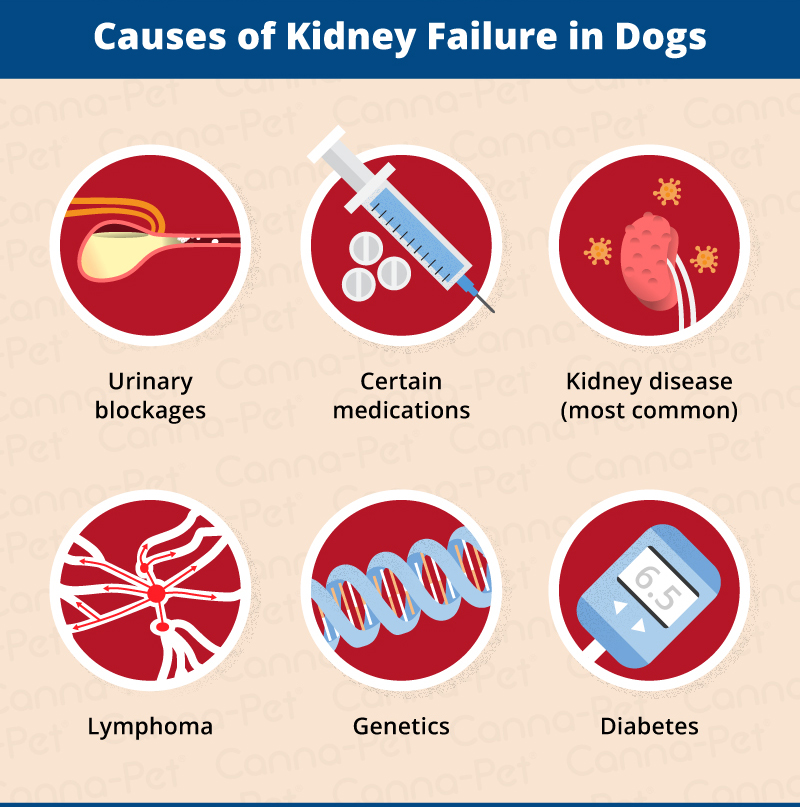Free Ideas On Deciding On Best Vitamins For Dogs
Free Ideas On Deciding On Best Vitamins For Dogs
Blog Article
Turmeric (Curcumin) Is The Natural Ingredient In Turmeric Helps With Joint Health Of Dogs As Well As Cats.
Turmeric is a popular ingredient, particularly curcumin and its active component, has been acknowledged as having potential benefits for improving joint health in both cats and dogs. Learn how turmeric can help improve joint health in your pet's health:
Anti-inflammatory properties
Reduction of Inflammation:
Curcumin has anti-inflammatory properties. It inhibits enzymes and cytokines that promote inflammation.
Curcumin's benefits include reducing joint inflammation, which helps reduce swelling and pain due to arthritis and similar conditions. This increases the pet’s comfort and mobility.
Antioxidant Effects
Oxidative Stress
Function: Curcumin is also a potent antioxidant. It neutralizes radicals that can cause cell damage and inflammation.
Benefits: Reduced oxidative stress helps protect joint tissues, slowing down the progression of joint diseases and ensuring joint health.
Pain Relief
Natural Painkiller:
Curcumin is known to decrease pain through modulating pain pathways.
Benefits: Natural treatment of joint pain may allow pets to live an active lifestyle.
Cartilage Protection
Inhibition of the breakdown of Cartilage:
Function: Curcumin helps inhibit the activity of enzymes that break cartilage.
Benefits: By protecting cartilage from degrading it is possible to maintain the integrity and function of joints in pets that suffer from joint pain.
Immune System Modulation
Immune Response Balanced:
The function: Curcumin helps regulate the immune system, encouraging a balanced reaction to inflammation.
Benefits of a healthy immune system: It will reduce inflammation and help maintain joint health.
Joint Health Overall Benefits
Turmeric can improve mobility in pets with joint issues through reducing pain, inflammation and protecting cartilage.
Improved Quality of Life: Pets that are less in pain and more mobile tend to be more active and engaged. This leads to a higher quality of living.
Considerations and Usage
Dosage and Administration: The right dose of curcumin or turmeric for pets depends on their weight, size, and health requirements. It is crucial to follow the recommendations of a veterinarian or the directions on the product's label. To enhance the absorption of curcumin, it is often given along with extracts of black pepper.
Turmeric supplements available for pets come in capsules (or powders) as well as chews (or chewables), and other forms. Choosing a high-quality, pet-specific product will guarantee security and efficacy.
Effects: Excessive doses of Turmeric can cause stomach upset in certain pets. Start with a lower dose and gradually increasing it can help minimize side negative effects. Also, it is important to be aware of any adverse reactions in pets such as vomiting and diarrhea.
Conclusion
Turmeric, and specifically the active ingredient curcumin has many benefits for joint health for dogs and cats. Its anti-inflammatory, antioxidant, and pain-relieving properties can help ease joint inflammation and pain, help protect cartilage, and improve overall joint functionality. Regular intake of turmeric supplements can enhance mobility and improve the quality of life of pets suffering from joint problems. Follow the most popular get more information about dogs supplements for site examples including cushings disease natural treatment, pet supplements for senior pets, uti natural treament, natural pet supplements, herbal supplements for cats, pet supplements for pets with fear of strangers, pet supplements for pets with grooming anxiety, pet supplements for pets with epilepsy and more.
What Can Coconut Oil Do To Help In The Treatment Of Cat And Dog Skin Allergies?
Coconut oil's antimicrobial and moisturizing properties can aid in managing skin allergies. Here's how coconut oil could help pets suffering from allergies to the skin:
Moisturizing Properties
Skin Hydration
Coconut oil is great for moisturizing skin and can penetrate easily.
Benefits: It assists in moisturize dry, flaky skin, providing relief from itching and encouraging an improved skin barrier. It's particularly beneficial to pets suffering from allergies or dermatitis. These conditions are often a cause of dry and itchy paws.
Anti-inflammatory Effects
Reduce inflammation
The function: Coconut oil contains lauric acid, which is anti-inflammatory. properties.
Coconut oil is a great way to reduce the redness and swelling caused by allergies. This is a great solution for pets that suffer from allergies.
Antimicrobial activity
Beware of Infections
Function: Lauric and caprylic acids in coconut oils have antimicrobial properties that aid in fighting viruses, bacteria, and fungi.
Coconut oil can be beneficial for treating skin irritations secondary to which can result from irritations or scratches caused by allergies. This aids in maintaining the good health of your skin while preventing any further complications.
Healing and Soothing
Promoting Healing
Coconut oil is a great ingredient to help support the skin's natural healing processes.
Benefits : It's an all-natural remedy that can help treat minor abrasions and cuts. This may accelerate the healing process for the skin injuries caused by allergies.
Barrier Protection
Enhancing Skin Barrier:
Coconut oil helps strengthen the natural barrier to skin.
Benefits: A stronger skin barrier protects against allergens and environmental irritants which reduces the risk of triggering allergic reactions as well as skin infections.
Dietary Supplements
Internal Benefits
Coconut oil may be consumed in the form of an dietary supplement.
It improves the health of your skin by providing nourishment to the skin by nourishing it from inside. Anti-inflammatory and antimicrobial properties can reduce systemic swelling and enhance the immune response in pets, potentially decreasing allergic skin conditions.
Use and Considerations
Topical Application - Apply a small amount of coconut oils directly to affected skin. Massage it gently to ensure that it's absorbent. This can be repeated once or twice daily based on the severity.
Oral supplementation: Coconut oil can be added to the pet's food. The dosage for pets is usually 1 teaspoon of coconut oil for every 10 lbs.
Coconut Oil Quality: Choose virgin, organic coconut oil free of additives and preservatives.
Be aware of reactions coconut oil generally is secure, be sure to keep watch over your pet to determine whether they have any reactions that are not normal. This could include diarrhea, vomiting, or skin irritation if it was applied on the skin.
The final sentence of the article is:
Coconut oil is a natural treatment for skin allergies that affect dogs and cats. The moisturizing healing, antimicrobial, the anti-inflammatory and antimicrobial qualities of coconut oil can soothe skin and reduce itching. They also promote healthy skin. Coconut oil is a fantastic option to treat allergies. It can also be used as nutritional supplement. Have a look at the best more helpful hints on natural dog company for blog recommendations including pet rhodiola supplements, kidney disease in cats, pet immune support, pet supplements for pets with fear of leashes and leads, pet supplements for pets with skin rashes, pet supplements for pets with fear of confinement, pet marshmallow supplements, pet lemon balm supplements and more.
Apple Cider Vinegar Can Be Used To Treat Yeast Infections In Dogs And Cats.
ACV is frequently recommended by veterinarians as a natural cure for yeast infections. ACV is acidic and may have side effects. Although some anecdotal as well as scientific research suggests the benefits, you should take it under the supervision of a veterinarian due to its possible adverse side effects and acidic nature. ACV can be used to treat yeast infections.
Antifungal Properties
Acidic Environment
ACV has a pH of 2.5 and 3, which is considered to be acidic. This acidic environment can cause an unhospitable environment yeast growth.
Benefits The benefits of applying ACV topically on your pet, or even putting it in their bath water will help to reduce yeast growth on the skin.
Skin pH Regulation
Balancing Skin pH:
ACV helps to regulate the pH of the skin, creating an endocrine-friendly barrier and preventing the growth of yeast.
Benefits: Maintaining a healthy pH balance will prevent yeast skin infections and help improve your skin's health.
Anti-inflammatory properties
Reduce Inflammation
Effect: ACV has mild anti-inflammatory properties.
Benefits: Reducing inflammation can ease symptoms like redness, itching, and discomfort associated with yeast infections.
Support for Digestive Health
Internal Use
Function: When consumed (in tiny amounts and highly diluted), ACV is thought to improve digestion and regulate gut flora.
Benefits Healthier gut environments supports overall immune functions and microbial imbalance which can reduce yeast growth.
Use and Considerations
Topical application: dilute the ACV with water (1 part ACV and 2 parts of water is normal) and then spray or wash it on affected skin areas or ears. Avoid using it on wounds that are open or on the skin.
Ask your doctor before taking ACV internally. ACV must be extremely dilute (e.g. 1 teaspoon to 1 tablespoon for every cup of water) and given in small quantities to prevent possible stomach upset or irritation.
Monitoring: Check for signs of allergic reactions or irritation during the use of ACV topically. Discontinue use if any adverse reactions develop.
Consultation with a Veterinarian: Prior to using ACV to treat yeast illnesses in animals, it's important to consult a veterinarian. They can provide guidance on proper dilution as well as application methods and the potential risk depending on your pet's particular health needs.
The conclusion of the article is:
While apple cider is beneficial in treating yeast infections in dogs and cats, it must be used with caution under veterinary supervision. ACV is acidic, and could create a situation which does not promote yeast growth. It may also have mild antiinflammatory effects. But, dilution is key and also careful use to avoid irritation. Veterinary guidance ensures that ACV is safe and efficiently as a part of a comprehensive treatment plan to treat yeast-related infections in animals. See the top rated her latest blog on dog herbalist for site info including pet astragalus supplements, pet slippery elm supplements, pet burdock supplements, pet fish oil supplements, pet astragalus supplements, pet supplements for pets with fear of explosions, pet hesperidin supplements, pet bromelain supplements and more.